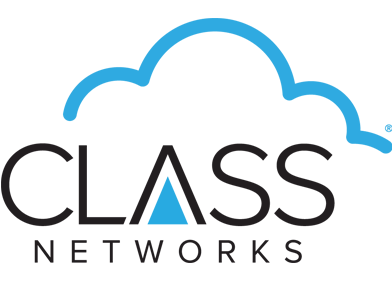The pandemic forced organisations of all kinds to rapidly adapt in order to ensure the continuity of their operations. Many have since found that these changes have actually improved efficiency and communication, as well as reduced overheads – benefits which cannot be undervalued from the perspective of a charity. It is now abundantly clear that remote jobs are here to stay, at least in some capacity, with hybrid working policies becoming the norm in 2022.
Whilst remote working offers a number of benefits to both employer and employee, it does present a few potential hurdles which, if left unaddressed, could negatively impact the ability of a charity to fulfil its objectives.
Having worked with more than 1,100 clients within the charitable and voluntary sectors over the past 30 years, Class Networks have the knowledge and expertise required to ensure that your transition to remote working operations is seamless. To find out more today call us on 0333 800 8822.
Top tips for effective home working for charities
As the trustee of a charity you have a responsibility to promote connectivity between your employees and benefactors. Understanding the different tools available and how they work, as well as creating a culture to enable effective charity work from home is imperative.
Here are our top tips for improving the conditions in which your remote employees work:
Create a positive culture and support remote workers
Workspaces

Encourage employees to create a designated (and where possible) separate workspace. It can be difficult for remote workers to ‘switch off’ after work, but by designating a separate space from which to work from employees will find it easier to avoid potential distractions and differentiate between work and home life.
Work / life balance
Working remotely promotes flexible working practices, and it’s important to promote a healthy work / life balance. Be clear about expectations and goals, but providing these are achieved on time and as required, allow employees the freedom to work to their own schedules.
Promote regular (virtual) face-to-face interaction
The importance of in-person or face-to-face interaction cannot be underestimated, and the lack-of for remote workers is one of the main contributing factors to loss of staff morale and employee engagement.
Video conferencing is a great way for employees to keep in touch and discuss important topics quickly and easily.
Provide remote workers with suitable technology and tools
Telephony systems
Choosing the right telephony system for your requirements is key to ensuring clear and effective communication between all parties. Hosted VoIP (Voice over Internet Protocol) services are the most popular among business, charities and voluntary organisations for good reason. They enable users (with an internet connection) to chat, video conference, screen share and collaborate in real time, from anywhere – all within a single application.
Video conferencing software

Instant messaging, telephony and email services are all essential communication tools, none compete with the clarity achievable through face-to-face interaction. With fewer and fewer office based employees, and greater than ever location independent communication requirements, video conferencing services such as Microsoft Teams, Zoom and Skype have made this possible on a remote basis.
Cloud based applications
Software as a Service (SaaS) is the most popular cloud-based platform. SaaS solutions are usually subscription-based and provide numerous advantages at an inexpensive price with no need for hardware installation, maintenance, or management. There are a wide range of service tools available, for example Customer Communication Software which automates the generation, transmission, and tracking of business and benefactor communications.
Engage in live conversations, video conferences, screen shares, and collaborate in real time – all within a single application with Microsoft’s 365. All 365 services and programs are linked together, allowing for smooth integration and business continuity.
How technology can help to ensure productivity
Improved accessibility, communication and collaboration
Cloud-based collaboration software allows users (i.e. remote workers) to access applications and services from any place with an internet connection at all times. It also enables several people in numerous locations to work on a single document, program, or app at the same time.
Elastic scalability
Charities often experience sudden spikes of user activity and, as a result, a drastic increase in workload demand. SaaS subscription and cloud-based services allow organisations to scale computing power up or down quickly and with little effort, as well as react to significant changes to the number of remote employees.
Improved system performance and reliability
In a single corporate data centre, individual computers from different networks must communicate with one another. The complexity of managing such an environment is enormous, even for experts. Cloud computing services employ a worldwide network of data centres that are continuously upgraded and frequently maintained, resulting in superior and more efficient hardware than a single corporate data centre can offer.
Microsoft (Office) 365 financially guarantees 99.9% uptime.
Benefits of remote workers and hybrid working solutions
Financial savings
By choosing to adopt remote and hybrid working practices charities are able to make considerable financial savings in areas including property leases, maintenance and power costs for premises otherwise needed for in office employees.
Additionally, the use of appropriate technologies such as Office 365, in which voice and data operate via the same network, mitigates the necessity for dual systems.
Boost employee morale
According to ONS (Office National Statistics) research “When asked about homeworking, working adults stated work-life balance was the greatest positive…”. Their report also states that “Of working adults currently homeworking, 85% wanted to use a “hybrid” approach of both home and office working in future.”
Improve employee productivity
Collaborative cloud software and increased employee morale will help to improve employee productivity. This will help take your charity to the next level as staff are able to work more efficiently and effectively online.
How Class Networks can help
We worked alongside charity Family Action to assist them with the upgrade of their entire IT systems and communications infrastructure. In conjunction with our partners Ethical IT we:
- implemented an entire hosted virtual office system
- converted an existing WAN (Wide Area Network) system into a fully managed, private and secure MLPS (Multi Protocol Label Switching) system
- installed hosted telephony system Avaya IP Office Server utilising the MPLS network
- migrated all mobile connections from disparate service providers and networks into one centrally managed solution
Get in touch for remote working solutions
If you’d like to know more any about of our services, or would like to discuss how your charity could benefit from the switch to remote work call us today on 0333 800 8822.
Posted in News
